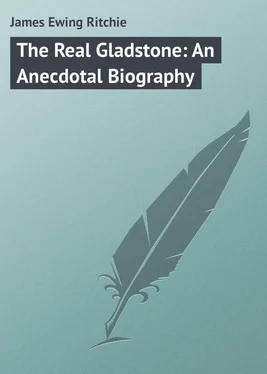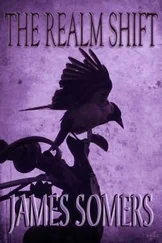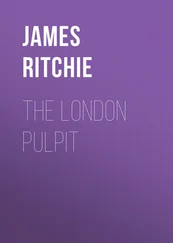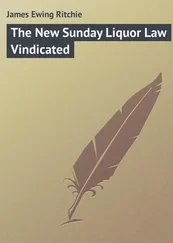James Ritchie - The Real Gladstone - An Anecdotal Biography
Здесь есть возможность читать онлайн «James Ritchie - The Real Gladstone - An Anecdotal Biography» — ознакомительный отрывок электронной книги совершенно бесплатно, а после прочтения отрывка купить полную версию. В некоторых случаях можно слушать аудио, скачать через торрент в формате fb2 и присутствует краткое содержание. Жанр: foreign_prose, на английском языке. Описание произведения, (предисловие) а так же отзывы посетителей доступны на портале библиотеки ЛибКат.
- Название:The Real Gladstone: An Anecdotal Biography
- Автор:
- Жанр:
- Год:неизвестен
- ISBN:нет данных
- Рейтинг книги:4 / 5. Голосов: 1
-
Избранное:Добавить в избранное
- Отзывы:
-
Ваша оценка:
- 80
- 1
- 2
- 3
- 4
- 5
The Real Gladstone: An Anecdotal Biography: краткое содержание, описание и аннотация
Предлагаем к чтению аннотацию, описание, краткое содержание или предисловие (зависит от того, что написал сам автор книги «The Real Gladstone: An Anecdotal Biography»). Если вы не нашли необходимую информацию о книге — напишите в комментариях, мы постараемся отыскать её.
The Real Gladstone: An Anecdotal Biography — читать онлайн ознакомительный отрывок
Ниже представлен текст книги, разбитый по страницам. Система сохранения места последней прочитанной страницы, позволяет с удобством читать онлайн бесплатно книгу «The Real Gladstone: An Anecdotal Biography», без необходимости каждый раз заново искать на чём Вы остановились. Поставьте закладку, и сможете в любой момент перейти на страницу, на которой закончили чтение.
Интервал:
Закладка:
About this time there appeared Mr. James Grant’s ‘Random Recollections.’ It is amusing to read: ‘I have no idea that he will ever acquire the reputation of a great statesman. His views are not sufficiently enlarged or profound for that; his celebrity in the House of Commons will chiefly depend on his readiness and dexterity as a clever debater, in conjunction with the excellence of his elocution and the gracefulness of his manner when speaking.’ ‘When a Select Committee of the House of Commons,’ writes Sir George Stephen, ‘was appointed to take evidence on the working of the apprenticeship system among the West Indian blacks, it was arranged between Buxton on the one side and Gladstone on the other that Mr. Burge and myself should be admitted as their respective legal advisers. At that time evidently Mr. Gladstone had been recognised as the champion of the one party as much as Mr. Buxton of the other.’
In the anti-slavery recollections of Sir George Stephen we have a graphic account of the struggle between Gladstone, as the advocate of slavery, and Sir John Jerome, a colonial judge, who may be said to have died a martyr to his anti-slavery zeal. ‘I shall never forget,’ writes Sir George, ‘his examination before the Apprenticeship Committee. Gladstone employed all his ingenuity in vain, and no man has a greater share of logical acumen, to bewilder him. But Jerome was quite his match. His evidence was argumentative, and therefore the cross-examination was in the nature of argument, as it generally is in Parliamentary Committees. It was a brilliant affair of thrust and counter-thrust. Gladstone was calm, imperturbable, and deliberate; Jerome wide-awake, ready at every point, and, though full of vivacity, as impossible to catch tripping as a French rope-dancer. He evaded what he could not answer, but evaded it so adroitly that Gladstone might detect but could not expose the evasion; and every now and then Jerome retorted objection to objection with a readiness that made it difficult to say which was the examiner and which the examined. The rest of the Committee silently watched the scene, as a conflict between two practised intellectual gladiators, and I am persuaded that Mr. Gladstone himself would admit that Jerome had not the worst of it. But if Mr. Gladstone had studied in the school of Oxford, Jerome was educated as an advocate for the French Bar, so they met on equal terms, while Jerome had the advantage of a good cause.’
Mr. Gladstone has been celebrated for his explanations. One of the earliest of them was written when he was Conservative candidate for Newark, addressed to a Mr. John Simpson, a Conservative Nonconformist. It is dated ‘Hawarden, Chester, July 10, 1841.’
‘Dear Sir,
‘I am sincerely obliged by your transmitting to me the curious extract contained in your letter of the 6th, as you state that it has occasioned uneasiness to some of my constituents. It had not met my eye, but had it done so, I should have passed it over without notice, trusting to its own glaring falsity to neutralize its design, just as I remember to have passed over an amusing sketch in the Weekly Dispatch , shown to me by a friend, which stated that I entered public life as a Liberal, but ratted to the Duke of Wellington and Sir Robert Peel in 1834, and that I was said openly to avow my readiness to sell myself to the best bidder. I have not the least hesitation in disclaiming, in the most emphatic and stringent language that you can suggest to me, all desire to remove or abridge the civil privileges at present enjoyed by any class of my fellow-subjects, or “to exercise the civil power” for the purpose of “compelling conformity” or “extinguishing dissent.” And I trust that I have already in print sufficiently disclaimed any such desire. With respect to “Puseyism,” or the religious part of the question, as your letter does not refer me to it, I need not here enter upon its discussion further than to say that I consider it clearly forbidden by my duty as a member of the Church to recognise any scheme of human opinions in theology as the basis of my belief, and of my hopes for the Divine mercy, and that the sum of Christianity, in my view, is that contained in the ancient Creeds, and demonstrated by the supreme authority of Scripture. While thus briefly dismissing the question, I have no desire to evade further inquiry. What I have published upon these matters now extends to a considerable bulk, and I could not expect you to undergo the considerable labour of going through the whole of it. I have, however, desired that a copy of the third edition of my first book on the “Relations of the Church with the State” may be forwarded to you by an early opportunity. More recently I have much enlarged the work; but if you will refer to the portions relating to persecution in that volume, you will, I think, perceive that I am not among its admirers. You will find parts particularly bearing on it in Chap. II., 72–7, and Chap. VI., 5–13. This, I hope, may satisfy you without your undertaking a more extended labour.
‘I remain, dear sir, your faithful servant,
‘W. E. Gladstone.‘You are at perfect liberty to make this letter known.’
In Parliament Mr. Gladstone defended the Irish Church, and when in the next session Mr. Hume introduced a Universities’ Admission Bill, intended to enable Dissenters to attend the Universities, Mr. Gladstone strongly opposed it. Soon after came the Tory reaction, and a General Election, at which Mr. Gladstone was again returned for Newark, in conjunction, however, this time with Serjeant Wilde. The new Parliament met in February, 1835. Mr. Gladstone was then Junior Lord of the Treasury in the new Government formed by Sir Robert Peel, a Government of but very short duration. Sir Francis Doyle writes: ‘When Mr. Gladstone had established himself as a rising M.P. at the Albany, he breakfasted there, and met the poet Wordsworth. The great poet sat in state surrounded by young and enthusiastic admirers. His conversation was very like the “Excursion,” turned into vigorous prose.’ At this time Wilberforce, afterwards Bishop of Oxford and Winchester, wrote to him: ‘It would be affectation in you, which you are above, not to know that few young men have the weight you have in the House of Commons, and are gaining rapidly through the country. Now, I do not urge you to consider this as a talent for the use of which you must render an account, for so I know you do esteem it, but what I want to urge upon you is that you should calmly look before you – see the degree of weight and influence to which you may fairly, if God spares your life and powers, look forward in future years, and thus act now with a view to then . There is no height to which you may not fairly rise in this country.’ Mr. Gladstone’s reply was not that of an optimist: ‘The principles of civil government have decayed amongst us as much as I suspect those which are ecclesiastical, and one does not see an equally ready or sure provision for their revival. One sees in actual existence the apparatus by which our institutions are to be threatened and the very groundwork of the national character is to be broken up; but on the other hand, if we look around for the masses of principle – I mean of enlightened principle blended with courage and devotion, which are the human means of resistance — these I feel have yet to be organized, almost created.’
In July, 1838, Mr. W. E. Gladstone wrote to Mr. Murray, the publisher, from 6, Carlton Gardens, informing him that he has written and thinks of publishing some papers on the relationship of the Church and the State, which would probably fill a moderate octavo volume, and he would be glad to know if Mr. Murray would be inclined to see them. Mr. Murray saw the papers, and on August 9 he agreed with Mr. Gladstone to publish 750 or 1,000 copies of the work on Church and State on half-profits, the copyright to remain with the author after the first edition was sold. The work was immediately sent to press, and proofs were sent to Mr. Gladstone, about to embark for Holland. A note was received from the author, dated from Rotterdam, saying that sea-sickness prevented him from correcting the proofs on the passage. This was Mr. Gladstone’s first appearance as author, and the work proved remarkably successful.
Читать дальшеИнтервал:
Закладка:
Похожие книги на «The Real Gladstone: An Anecdotal Biography»
Представляем Вашему вниманию похожие книги на «The Real Gladstone: An Anecdotal Biography» списком для выбора. Мы отобрали схожую по названию и смыслу литературу в надежде предоставить читателям больше вариантов отыскать новые, интересные, ещё непрочитанные произведения.
Обсуждение, отзывы о книге «The Real Gladstone: An Anecdotal Biography» и просто собственные мнения читателей. Оставьте ваши комментарии, напишите, что Вы думаете о произведении, его смысле или главных героях. Укажите что конкретно понравилось, а что нет, и почему Вы так считаете.












